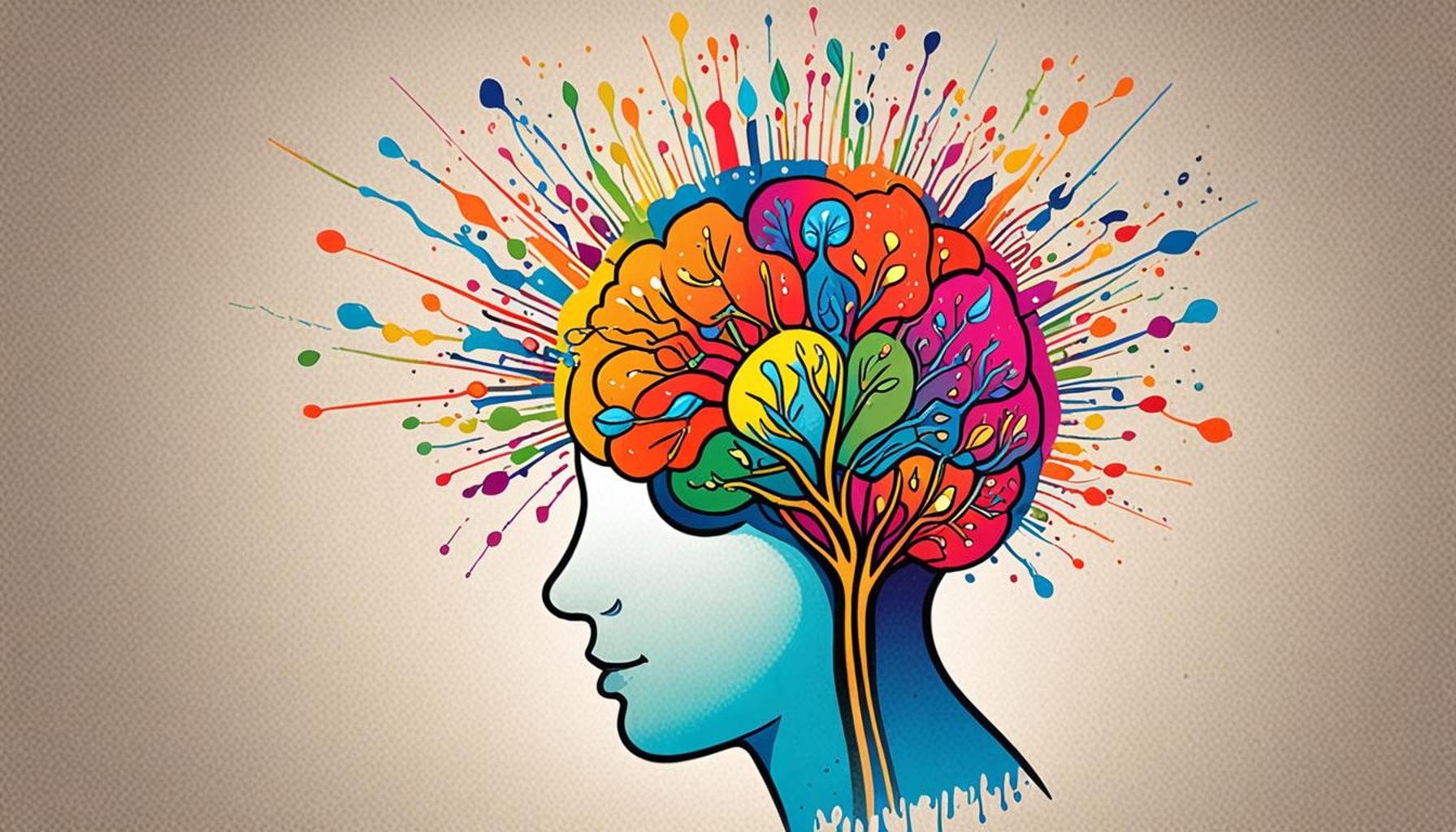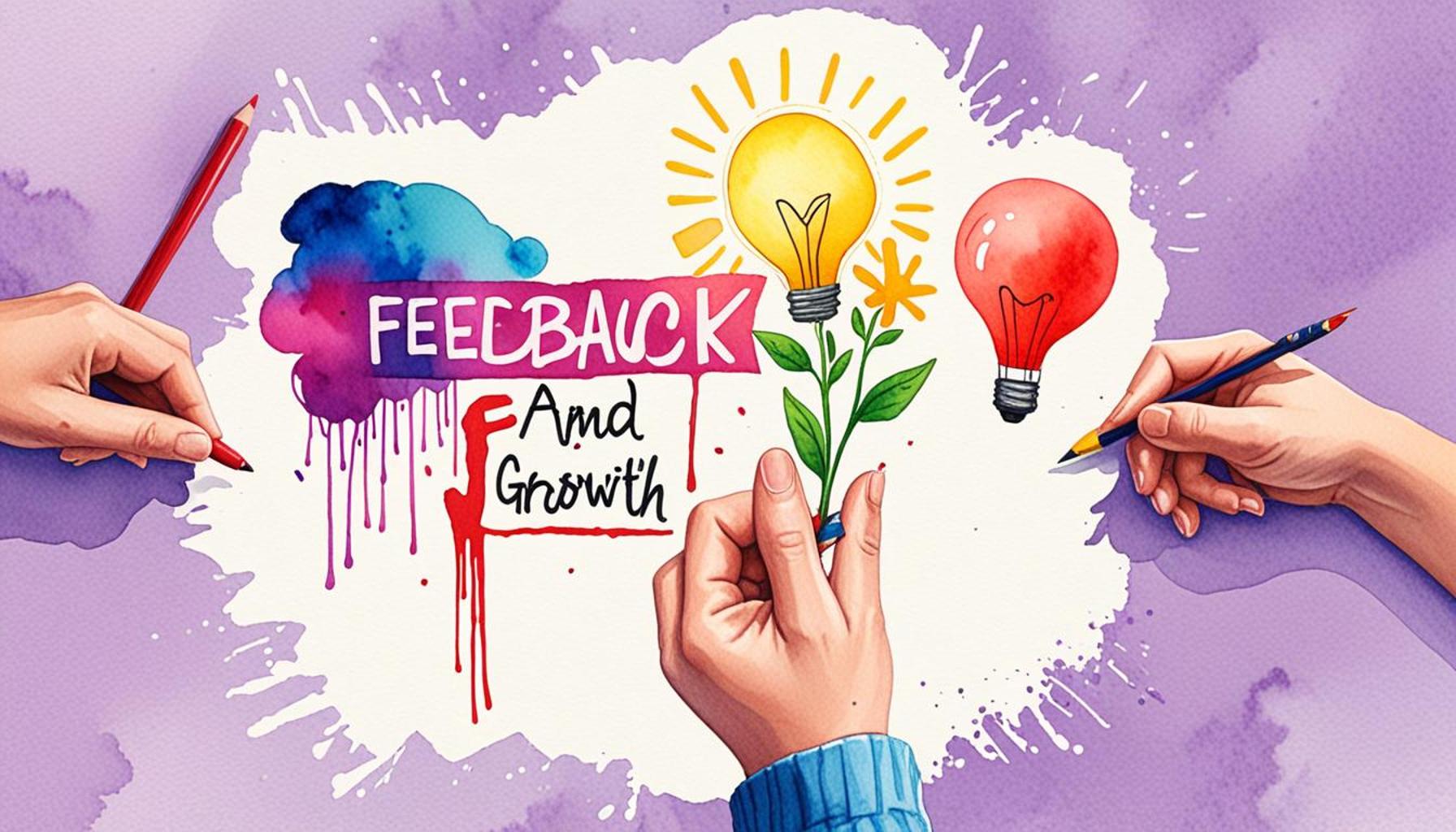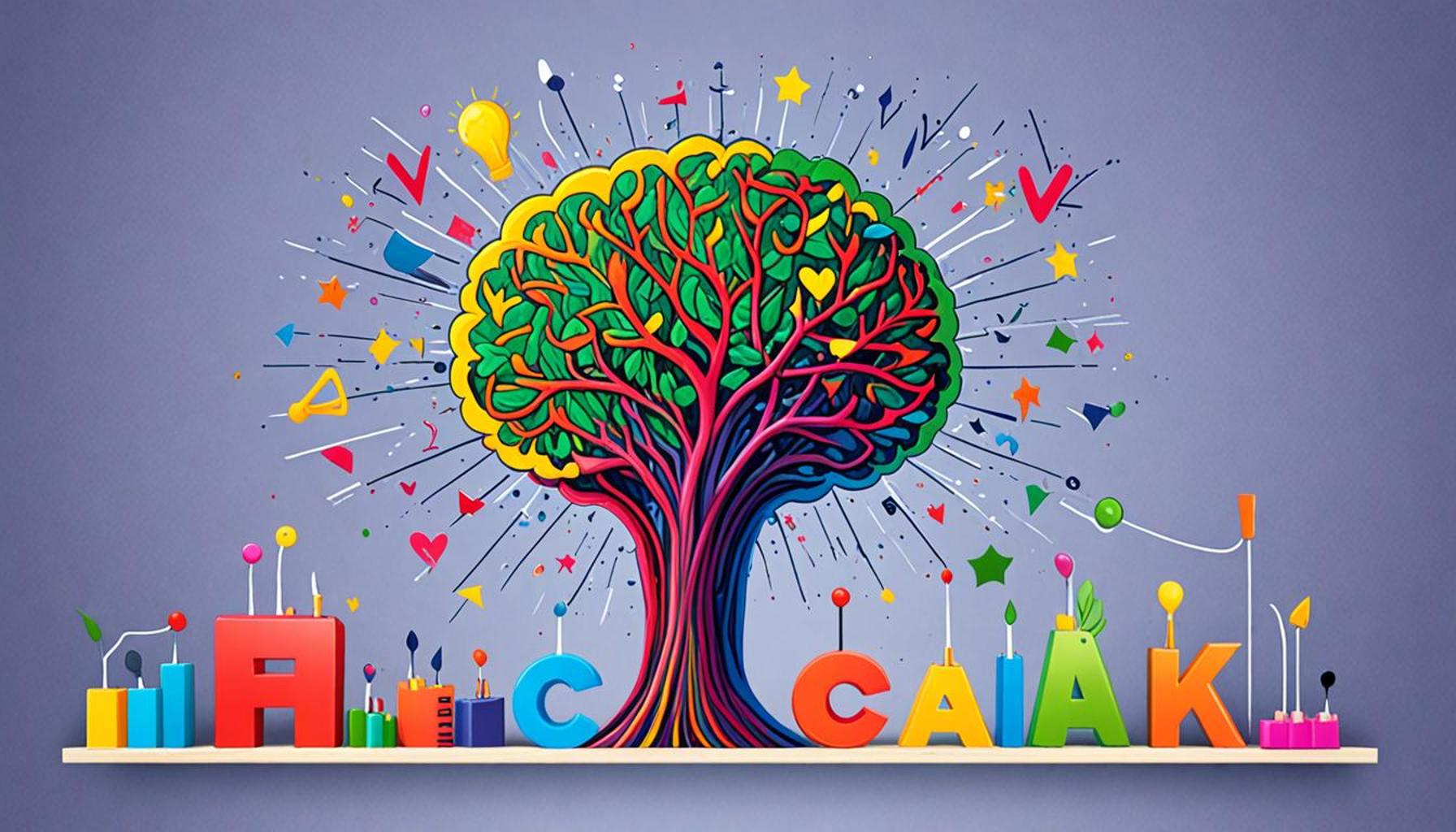Feedback and the Growth Mindset: The Connection between Authenticity and Learning

Understanding the Importance of Feedback in Personal Development
In a world that constantly evolves, the dynamics of learning are shifting. Embracing a growth mindset has become crucial for personal and professional development. This mindset allows individuals to view challenges as opportunities, transforming feedback into a catalyst for improvement. By viewing abilities and intelligence as qualities that can be developed, individuals are more motivated to pursue growth and learn from their experiences.
The role of authenticity in this journey cannot be overstated. Authentic feedback fosters an environment where:
- Individuals feel safe to express their thoughts and ideas.
- Honest assessments help in recognizing areas needing growth.
- A collaborative culture emerges, encouraging shared learning experiences.
When feedback is delivered in an authentic manner, it encourages engagement and transparency. For instance, in Nigerian workplaces, employees often thrive when their managers take the time to provide constructive criticism that comes from a genuine place. Such environments naturally promote innovation and creativity, as people feel liberated to take risks and contribute their unique perspectives.
The Context of Nigeria: Feedback as a Tool for Advancement
In Nigeria, where rapid advancements are visible across various sectors such as technology, education, and entrepreneurship, harnessing feedback becomes even more essential. The startup ecosystem in cities like Lagos and Abuja has flourished primarily due to a culture of collaboration and open communication. For students, professionals, and organizations alike, understanding how to cultivate a growth mindset through authentic feedback can lead to:
- Enhanced problem-solving skills, which are crucial in navigating complex issues that arise in everyday business.
- Improved communication among team members, reducing misunderstandings and fostering stronger relationships.
- A greater sense of purpose and motivation, enabling individuals to align their personal goals with organizational objectives.
Consider the case of local tech startups in Nigeria; those that actively seek feedback from both customers and team members often see improved product development and customer satisfaction. Regular feedback loops, whether through surveys, performance reviews, or team discussions, can significantly enhance project outcomes.
As we delve into this relationship, we uncover not only the importance of feedback in learning but also how authenticity enhances this process. The synergy between feedback and growth mindset is a testament to the belief that learning is a lifelong journey. Join us on this exploration to discover how integrating these concepts can significantly impact personal and collective growth, serving as a foundation for a thriving society.
RECOMMENDED: Check out this similar article
The Interplay of Feedback and Growth Mindset
The connection between feedback and a growth mindset is intricately woven into the fabric of effective learning and personal development. At its core, feedback acts as a mirror, reflecting not only our current capabilities but also illuminating potential pathways for improvement. For individuals in Nigeria, where diverse socio-economic factors influence learning environments, the authenticity and quality of feedback can dramatically shape outcomes.
In educational settings, for instance, teachers who provide constructive feedback grounded in authenticity can help students embrace a growth mindset. Instead of labeling students as “smart” or “not smart,” educators who focus on the effort and strategies of students allow them to understand that learning is a continuous journey. This approach transforms feedback into a positive reinforcement tool that celebrates progress rather than perfection.
This correlation extends beyond classrooms. In Nigerian workplaces, the effectiveness of feedback can determine career trajectories. Employees who receive honest evaluations from their superiors are more likely to engage in self-reflection, thus contributing to a culture that prioritizes professional growth. Here are some ways in which authentic feedback can nurture a growth mindset within organizations:
- Promoting Self-Awareness: Regular feedback sessions help individuals become more aware of their strengths and weaknesses, which is essential for personal growth.
- Encouraging Adaptability: When employees are encouraged to adjust their approaches based on constructive criticism, they cultivate flexibility, which is pivotal in rapidly changing industries.
- Building Trust: A culture that values authentic feedback fosters trust between team members and leadership, leading to improved morale and productivity.
Companies that prioritize a feedback-rich culture, such as those in Nigeria’s thriving tech scene, often report enhanced collaboration and innovation. With teams engaging in open dialogues, members feel empowered to voice concerns, propose ideas, and experiment without fear of failure. This shift towards embracing failure as part of the learning process is a hallmark of the growth mindset, echoing the sentiment that every setback is merely a setup for a comeback.
Furthermore, organizations that implement structured feedback mechanisms, like 360-degree feedback or peer reviews, can better gauge the overall performance and satisfaction of their employees. As such, the synergy between feedback and growth mindset not only enriches individual experiences but also drives collective success within the company.
As we further explore this connection, it becomes evident that authenticity within feedback loops is paramount. Authentic feedback not only guides learning but also plays a vital role in shaping an open, innovative culture—an essential component of thriving networks across Nigeria. In this dynamic landscape, embracing feedback as a learning opportunity can empower individuals and organizations to redefine what success looks like in this modern age.
| Advantages | Connection to Authenticity |
|---|---|
| Encourages Open Communication | Fosters a safe space where individuals feel comfortable sharing thoughts and feelings, enhancing authentic communication. |
| Promotes Continuous Improvement | Supports a mindset where learners view challenges as opportunities, driving personal growth and a focus on self-improvement. |
| Builds Resilience | Encourages individuals to embrace failures as part of the learning process, reinforcing the value of authentic experiences. |
| Enhances Peer Relationships | Strengthens connections between peers, creating a collaborative atmosphere where authentic collaboration thrives. |
The relationship between feedback and the growth mindset is pivotal in nurturing authentic learning experiences. By encouraging open communication, feedback mechanisms create an environment where learners feel valued and understood. This authenticity catalyzes deeper engagement in the learning process, allowing individuals to ascertain their strengths and areas for development.Moreover, recognizing failures as essential to growth—an intrinsic element of the growth mindset—further catalyzes resilience. This resilience is not merely about bouncing back; it promotes continuous improvement by shifting focus towards self-reflection and constructive assessment. As learners establish meaningful connections with peers, they cultivate relationships characterized by trust and shared learning experiences, thereby enhancing their authenticity in interactions.The dynamic interplay between feedback, growth mindset principles, and authenticity forms a robust foundation for effective learning, allowing individuals to maximize their potential and foster a rich intellectual environment. Exploring this interconnectedness invites readers to reconsider how they approach feedback and personal growth in their educational journeys.
LEARN MORE: This related article may interest you
The Role of Authenticity in Effective Feedback
To fully appreciate the connection between qualitative feedback and a growth mindset, one must consider the undeniable role of authenticity in the feedback process. Authentic feedback is rooted in honesty and relevance, allowing individuals to trust the insights they receive. In the context of Nigeria, where the diverse educational systems and corporate environments can sometimes foster a culture of superficial assessments, genuine feedback becomes a critical catalyst for meaningful growth.
Research shows that when feedback is perceived as authentic, it significantly enhances the receiver’s motivation and receptiveness. For instance, an initiative from a progressive Nigerian university demonstrated that incorporating student feedback into teaching practices led to improved academic performance. The educators who engaged with authentic reflections from their students became better equipped to tailor their approaches, thereby fostering a more adaptable learning environment.
This principle extends beyond educational institutions into the corporate realm. Organizations known for their commitment to authenticity in feedback, such as local startups and tech firms, often exemplify a proactive stance towards employee engagement. For example, a tech company based in Lagos implemented quarterly one-on-one check-ins that focused on individual strengths and areas for growth. This session turned into a platform for employees to express themselves freely, leading to increased innovation and job satisfaction.
- Creating Safe Spaces: Businesses that nurture open discussions encourage employees to share constructive criticism without fear of repercussion. This psychological safety is fundamental to fostering a growth mindset.
- Personalized Development Plans: Tailoring feedback to individual needs paves the way for creating customized learning paths, aligning personal ambitions with organizational goals.
- Recognizing Efforts: Celebrating incremental achievements teaches employees that progress is often the result of sustained effort, thereby reinforcing the growth mindset.
Furthermore, the impact of authentic feedback in Nigerian workplaces can be seen in the thriving entrepreneurial ecosystems. Many leaders understand that as much as authority is vital, empathy plays an equal role. Hence, they engage in a two-way dialogue with their team members to share insights based on genuine observations. By doing so, they not only build trust but also maintain a continuous growth cycle that benefits both the individual and the organization.
The ability to assimilate authentic feedback often leads to a culture of peer learning among colleagues. When employees share their feedback experiences with one another, it ignites a collaborative atmosphere where everyone is encouraged to improve and learn. This synergy transforms the workplace into a dynamic learning hub—essential for maintaining competitive advantages in Nigeria’s rapidly evolving economy.
As the link between feedback and a growth mindset becomes increasingly established, organizations that actively promote this relationship cultivate resilient teams capable of adapting to challenges. By championing authenticity in feedback, individuals, teams, and organizations can unlock their true potential, setting the stage for sustainable success in an ever-changing landscape.
LEARN MORE: This related article may interest you
Conclusion: The Path to Authentic Learning
As we delve into the intricate relationship between feedback and a growth mindset, it becomes clear that authenticity serves as the cornerstone of effective learning. Authentic feedback not only builds trust within educational and corporate environments in Nigeria but also fosters an atmosphere conducive to personal and professional growth. The ability to engage in honest and relevant feedback facilitates a transformative learning process that encourages individuals to embrace challenges and rethink their boundaries.
Research underscores that environments which prioritize authentic interactions—whether in classrooms or workplaces—witness remarkable advancements in motivation and performance. It is evident that organizations and educational institutions that cultivate genuine feedback foster not only adaptability but also a spirit of collaboration, allowing individuals to flourish as part of a supportive community. The practice of celebrating gradual progress further reinforces the growth mindset, instilling in individuals the belief that effort translates to achievement.
Moreover, as Nigeria continues to navigate a dynamic and rapidly changing economic landscape, the role of authentic feedback cannot be overstated. By nurturing safe spaces for open dialogue and personalized development plans, institutions can transform the learning experience, turning challenges into opportunities. Overall, the connection between feedback and a growth mindset is pivotal; it paves the way for enhanced resilience, innovation, and sustainable success.
In conclusion, embracing authenticity in feedback mechanisms can ignite a powerful cycle of continuous learning and improvement, crucial in not just surviving but thriving in the modern world. Therefore, fostering a culture that prioritizes genuine feedback should be at the forefront of educational reforms and organizational practices across Nigeria and beyond.



